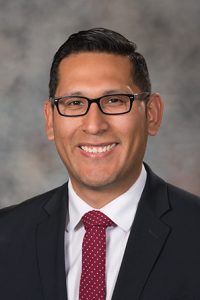Bill would require schools to develop remote learning plans
Nebraska public schools would create detailed plans describing their remote learning options under a bill heard Feb. 8 by the Education Committee.
Under LB623, introduced by Omaha Sen. Tony Vargas, each school board would adopt a remote learning plan that would give students who are unable to attend school in person a choice to enroll in a remote learning option through their school district.
Each plan would include the school’s rules and procedures for offering remote instruction and would describe each remote learning option.
Vargas said remote learning likely will outlast the pandemic and could provide a viable option to continue class when students are ill or schools close due to weather. However, he said, the lack of shared standards — or even shared definitions of remote learning terms — has resulted in education disparities for minority and low-income students.
Vargas said LB623 would help ensure that remote learning options provide a high-quality education using technology that is equitable, accessible and reliable in a way that is fair to teachers.
“We’ve all seen reports in the news about this [situation] driving teachers to retirement,” he said. “Without the training and supports in place, the job has become exponentially more stressful and difficult.”
Under LB623, each remote learning option would be provided at no cost to students and align with the school district’s curriculum.
The plans would state the attendance and grading practices to be used in remote learning options, require regular interaction between students and instructors and include a certain amount of web-based live instruction each day.
They would include professional development for teachers that would focus on the teaching methods necessary for remote instruction. They also would guarantee training for students and parents on the use of any technology necessary for accessing teachers’ virtual office hours.
Additionally, the plans would provide students enrolled in remote learning options the same access to resources — such as school psychologists and counselors — as those who use an in-person option, ensure that remote learning options meet the needs of English language learners and protect the rights of students with disabilities.
Finally, the plans would ensure that students receiving remote instruction have access to electronic devices and internet connectivity sufficient to allow them to participate fully. Students and instructors would have access to an information technology officer or help desk to assist with technical problems.
Lee Perez, an English as a second language teacher at Omaha Public Schools, testified in support of the bill on behalf of the Nebraska State Education Association. He said teaching remotely during the pandemic has been exhausting and the most difficult experience of his career.
LB623 would give teachers a structured approach to remote learning and help ensure that students learning online get the same education they would in the classroom, Perez said. He said the bill also recognizes that effective remote instruction has its own teaching methods.
“It is far more than just placing students in front of a screen and expecting them to watch a teacher engage with the students physically present in the classroom,” Perez said.
Elizabeth Eynon-Kokrda of Education Rights Council also testified in support, saying Nebraska school districts have taken wildly different approaches to remote instruction during the pandemic. She said some offer only synchronous instruction, in which remote students watch their teacher in real time, something that is especially difficult for students with learning disabilities or low English proficiency.
LB623 would allow school districts to create their own remote learning plans while requiring them to be pedagogically sound, meet basic standards and give students an idea of what is expected of them, Eynon-Kokrda said.
“As a state, if we want sound educational practices and equity for all kids, we need the structure that LB623 offers,” she said.
Jack Moles, executive director of the Nebraska Rural Community Schools Association, testified in opposition to the bill on behalf of his organization, the Nebraska Council of School Administrators, the Nebraska Association of School Boards and other groups.
He said school boards should be left to solve the problems of remote learning at the local level. Additionally, Moles said, requiring schools to ensure that students have internet access would be problematic in areas that lack broadband connectivity.
Spencer Head testified in opposition to the bill on behalf of Omaha Public Schools. He said LB623 could require schools to provide remote learning to each student whether they need it or not, resulting in “astronomical” costs.
The committee took no immediate action on the bill.

